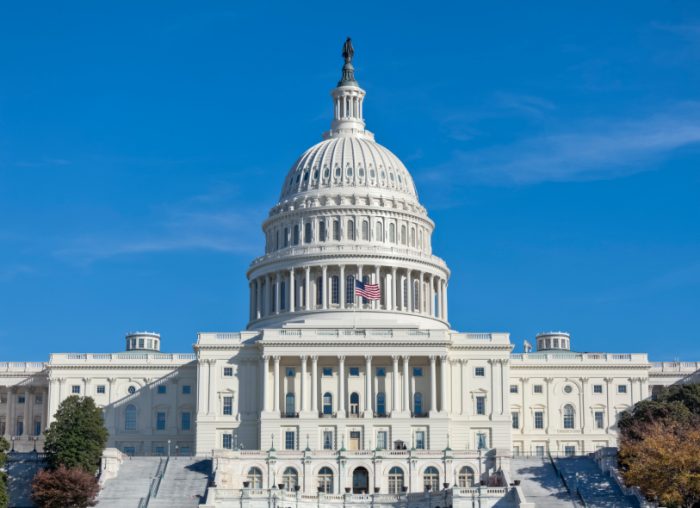Governor Shapiro
Governor Issues Proclamation for Autism Acceptance Month
Governor Josh Shapiro has signed a proclamation declaring April as Autism Acceptance Month. The proclamation recognizes the many individuals on the autism spectrum, their abilities and contributions, and their inclusion within the community. You can view the proclamation here.
Governor Shapiro Gives 2024 Budget Address
Today, Governor Josh Shapiro gave his second budget address to members of the General Assembly. The Governor outlined an agenda that included new spending for direct service providers, minimum wage, education, health care, law enforcement, and a number of other initiatives. The below budget initiatives come from information from the Governor and his team, which has been made available to stakeholders. The budget proposals include:
Investing in Competitive Pay and Reimbursement of Services for Home & Community-Based Care
- Increase in minimum wage to $15/hr.
- $34.2 million in Community Waiver and $1.85 million in the Community Base Program, which will allow DHS to expand the number of individuals participating in home and community-based services programs.
- Reimbursement Rates: The 2024/25 executive budget invests $213 million toward Community Waiver Program, $2.1 million in the Autism Intervention Program, and $1.1 million in the Community Base program. It also leverages $266 million in total federal funding to increase resources for providers of home and community-based services.
- Equality in Communication Services: Inclusivity and equality require appropriate communication for Pennsylvanians with intellectual disabilities and/or autism who need it. This budget invests $934,000 to add American Sign Language and English interpreter services to program serving this population.
- For more in-depth information regarding funding for ID/A services, visit here.
Making Pennsylvania a Leader in Economic Development, Job Creation, and Innovation
- $500 million in PA SITES funding to bring more commercial and industrial sites online and ensure companies have options for attractive business environments where they can move quickly and thrive in Pennsylvania.
- $25 million for the Main Street Matters program, to support small businesses and commercial corridors that are the backbone of communities across our Commonwealth.
- $20 million to support large-scale innovation and leverage Pennsylvania’s best-in-class research and development assets.
- $3.5 million to create and launch the Pennsylvania Regional Economic Competitiveness Challenge, which will incentivize regional growth, build vibrant and resilient regions, and support communities by investing in the development of comprehensive strategies to propel entire regions forward.
Building on Historic Education Investments & Making Progress to Support Every Pennsylvania Child
- A historic nearly $1.1 billion increase in basic education funding — the largest increase in Pennsylvania history, recognizing the work of the BEFC and the need to direct these investments to the schools that need them the most. Of this significant increase, nearly $900 million is proposed as a first-year adequacy investment as recommended by the BEFC. The remaining $200 million will be distributed through the Basic Education Funding Formula.
- A $50 million increase for special education funding to ensure school districts have the basic resources necessary to provide special education services to students with disabilities and special needs.
- A $50 million annual investment in school safety and security improvements and $300 million in sustainable funding for environmental repair projects in school buildings.
- $10 million for the Educator Talent Recruitment Account and $450,000 to support the Talent Recruitment Office at the Pennsylvania Department of Education.
- A $5 million increase — coming to a total of $15 million — in funding for student teacher stipends to support Pennsylvanians training to become certified and committed educators.
Delivering a New Blueprint for Higher Education Grounded in Access & Affordability
- $975 million in this new governance system that combines our community colleges and PASSHE schools — a 15 percent increase from $850 million last year in state investment in state-owned universities, community colleges, and the students they serve.
- A 5 percent increase in institutional support for the Commonwealth’s state-related universities — Penn State, Temple, Lincoln, and Pitt — and a 15 percent increase to Thaddeus Stevens College of Technology.
- An increase in financial aid for students who attend the schools under the new governance system, so that Pennsylvanians making up to the median income will pay no more than $1,000 in tuition and fees per semester.
- An increase in financial aid for students who attend the schools under the new governance system, so that Pennsylvanians making up to the median income will pay no more than $1,000 in tuition and fees per semester beginning in FY 2025/26.
- Increasing Pennsylvania Higher Education Assistance Agency (PHEAA) state grants by $1,000, bringing the maximum award up from $5,750 to $6,750 beginning in FY 2025/26.
- Investing $279 million annually starting in FY 2025/26 so Pennsylvania students can attend college in-state with a limited debt load after they graduate and can enter the workforce ready to start their careers and build a future in our Commonwealth.
The above are highlights of the Governor’s proposed budget. RCPA will be examining the budget spreadsheets over the next few days, will be attending the DHS Budget Overview this Friday afternoon, and will update members with any new information as it becomes available during the budget season.
If you have any questions, please contact Jack Phillips.
Governor Shapiro’s 2024/25 Proposed Budget Invests in ID/A Services
RCPA is happy to share highlights of Governor Shapiro’s proposed budget that recognizes the needs of the ID/A community in a way that Pennsylvanians have not seen for many years.
Governor Shapiro is prioritizing investments in home and community-based service providers so that they can pay competitive rates to attract and retain staff who provide these life-changing services to Pennsylvanians. The governor is proposing an increase in reimbursement rates by 12%, which will invest a total of over $480 million. This will be divided by state ($217 million) and federal ($266 million) funding for programs that support ID/A.
This budget will invest $34.2 million in the Community Waiver and $1.85 million in the Community Base Program, which will allow the Department of Human Services (DHS) to expand the number of individuals participating in home and community-based services programs.
The 2024/25 executive budget invests $213 million toward the Community Waiver Program, $2.1 million in the Autism Intervention Program, and $1.1 million in the Community Base program. It also leverages $266 million in total federal funding to increase resources for providers of home and community-based services.
In addition, this budget invests $934,000 to add American Sign Language and English interpreter services to programs serving those who require these services in order to experience equality in communication.
In response to this announcement, Richard Edley, PhD, President and CEO of RCPA, stated, “Governor Shapiro is really living up to his mandate to ‘get stuff done!’ The disability community has waited decades for a governor that would make systemic fixes a key budget issue, and the day has finally come. This may not solve all the issues that nearly destroyed this critical system of care and support, but it’s a start, which is more than we’ve had in quite some time.”
Read the summary of Governor Shapiro’s proposed budget plan for ID/A services. RCPA will be sharing more analysis of the budget when additional information is released.
Capitolwire: Voucher Bill Standoff Looms Over Budget Negotiations as Deadline for Deal Dwindles to Hours.
By John Finnerty
Capitolwire.com Bureau Chief
HARRISBURG (June 30) – The race to finish the state budget begins with a staring contest – Senate Republicans on Thursday passed a controversial but potentially historic school voucher bill that House Democrats say they won’t take up.
Both chambers recessed Thursday without taking further action on the budget, leaving the spending plan and related code bills unfinished as the time before the deadline to get a plan in place dwindles to hours.
Of course, missing the June 30 deadline is hardly unprecedented. Last year’s budget was eight days late and former Gov. Tom Wolf’s first budget resulted in an impasse that dragged on for months – it wasn’t finally resolved until March.
Senate Republicans have been pressing to get the provisions in House Bill 479 included in the budget and Gov. Josh Shapiro has repeatedly said he supports the concept while saying he thinks any move to allow vouchers must also include a number of other initiatives to better-fund and otherwise improve public schools.
The Senate approved HB 479 (after amending the voucher language into a House bill aimed at changing the reimbursements for ambulance trips) on a mostly party-line vote. The Democrat who supported the bill was Sen. Anthony Williams, D-Philadelphia. Williams delivered a fiery speech on the Senate floor in defense of his support of the measure, saying he’d been targeted in the primaries over his support of school choice options for family but won re-election decisively nonetheless.
Williams, like Republican proponents, said his support of the measure was focused on providing opportunities for families who feel trapped by unsafe or otherwise failing public schools.
Under the measure, families that live in poor performing school districts would be eligible for state-funded scholarships — $5,000 a year for students in grades K-8; $10,000 for high school students; and $15,000 for special needs students – that could be used to pay private school tuition.
The legislation would provide $100 million in scholarships.
But House Democrats insist that the measure won’t get a vote in that chamber and if it did it would fail, despite Democrats narrow 102-101 majority in that chamber.
House Majority Leader Matt Bradford, D-Montgomery, said his caucus is “united” in opposition to the bill.
“There are not the votes for it, it’s not coming up and, if it comes up, it will be defeated,” Bradford told reporters late Thursday.
Bradford blamed the impasse on Senate Republicans who have yet to move any budget-related bills. The House passed a spending plan in early June.
But House Republican leaders said House Democrats are causing the impasse by their unwillingness to compromise to get a budget deal in place.
“They are hell-bent on passing a budget with 102 votes. If they don’t move off that position, we may never get a budget,” said Rep. Seth Grove, R-York, the Republican chairman of the House Appropriations Committee.












